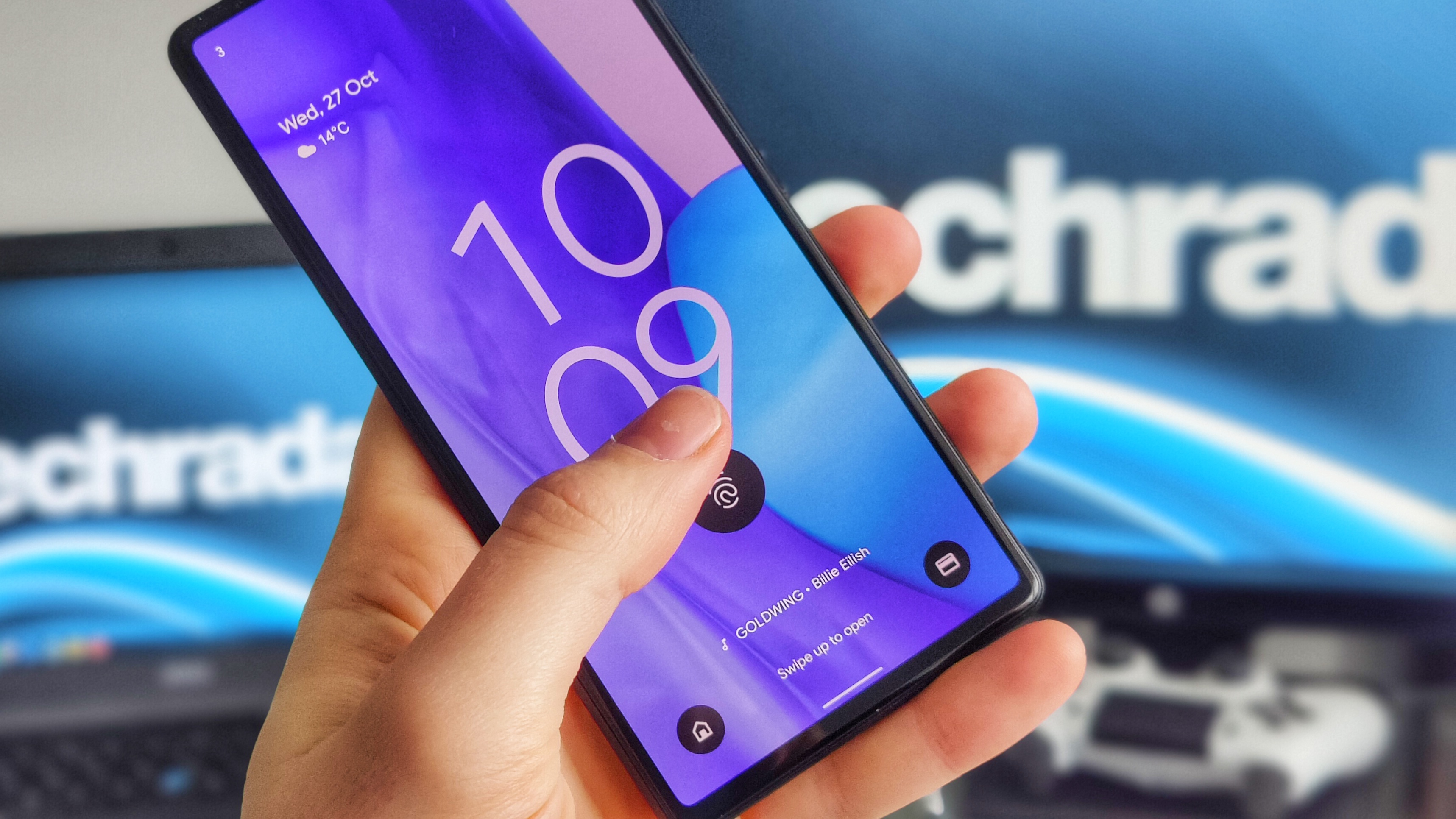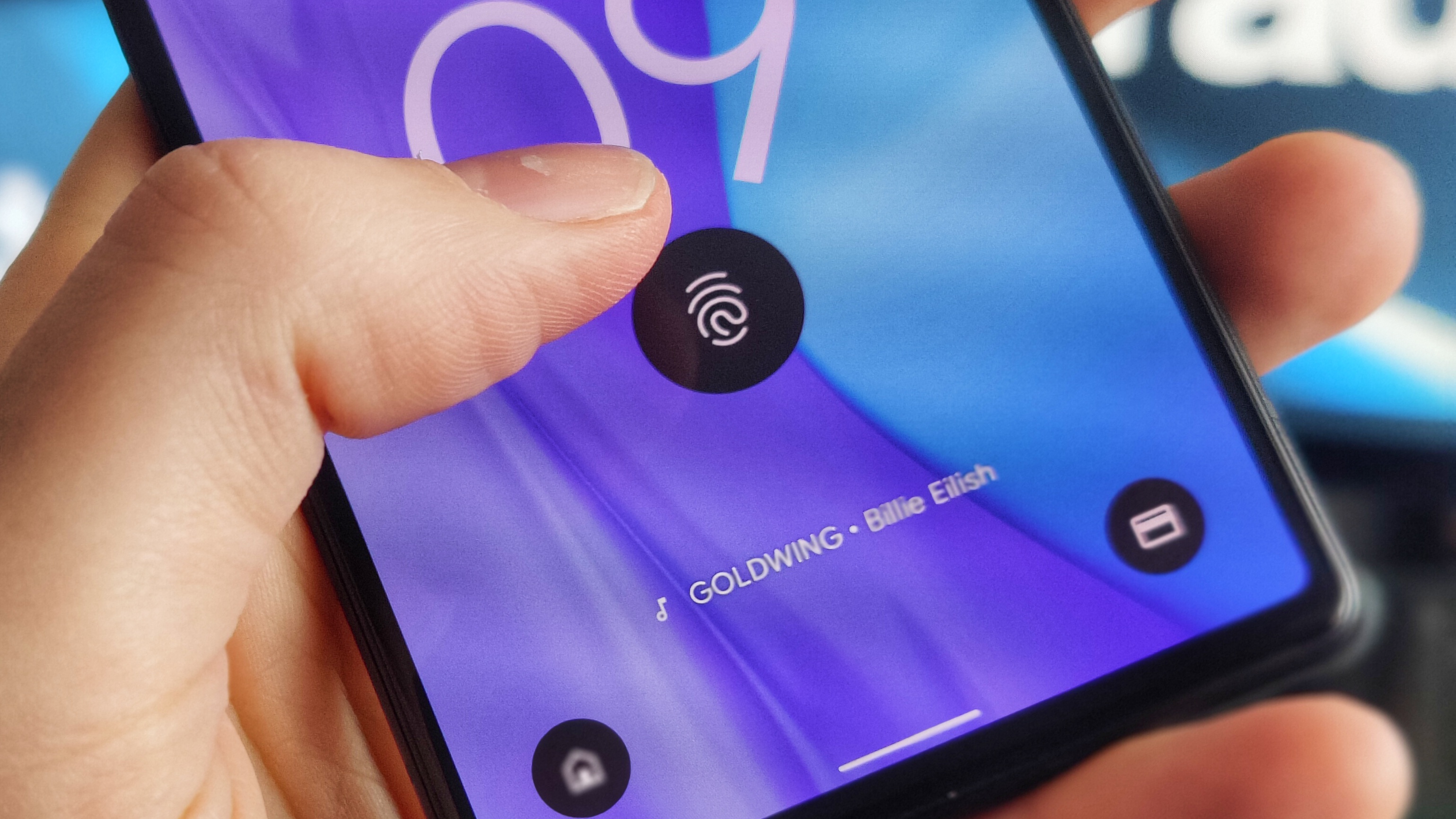Google Pixel 6's fingerprint scanner is perfectly placed, so it's a shame it sucks
Placement perfect, performance poor

Fingerprint scanners on phones have been around for almost a decade, and while Apple is determined to move away from them, our digits are still the body biometric of choice for the majority of manufacturers.
However, not every print sensor is made, or located, equal. Picking up the Pixel 6 for the first time, it was clear Google had got something right. The fingerprint scanner location.
It's embedded under the display - which is common these days - but unlike some manufacturers, it's not right at the base of the screen.
Rather, Google has located the scanner about a quarter of the way up the screen, and this makes it much easier to hit.
Removing fingerprint frustrations
I was swapping over from the OnePlus 9, which has a sensor towards the bottom of the display. It means when held in one hand, I'd sometimes need to awkwardly shuffle the handset to get my thumb in the correct place.
Before the OnePlus 9 I was using the Pixel 4a for a few months in 2020, and while its rear mounted scanner was easy to hit when the phone was in-hand, it wasn't accessible when lying on my desk.
The Google Pixel 6 addresses both of these frustrations. It's easy to hit when held in the hand, and also accessible when laid on a desk - it also has the added benefit of not rocking on a desk when you prod it, as its oversized camera bump spans the entire width of the handset, providing a solid grounding for the handset.
Get daily insight, inspiration and deals in your inbox
Sign up for breaking news, reviews, opinion, top tech deals, and more.
Compare that to a number of major handsets today, whose cameras tend to be located in one corner on their rears, and you’re in wobble city.
Back to the Pixel 6 though, and my top tip for registering your fingerprints - on this phone or any other with an under-display scanner - is do both thumbs and both forefingers. This combination ensures easy unlocking in any scenario.
I was delighted with these revelations, but now having used the Pixel 6 for over a week, there is a fundamental issue that’s dampening my initial optimism.

Not all plain sailing
While the placement of the fingerprint scanner on the Google Pixel 6 is perfect, the performance isn't so good.
The scanner on the Pixel 6 feels a tad slow. I'm talking a fraction of a second or so, but there's a noticeable delay versus some of the many phones I've used over the years.
It's still relatively early days - I've been using the Pixel 6 for two weeks - but another, bigger annoyance I'm facing is the high frequency of failed readings.
A lot of the fingerprint scanners in new phones improve accuracy the more you use them, so the Pixel 6 may well improve for me as the weeks go by, but early detection performance isn't promising.
James Peckham, TechRadar's Phones Editor, has also cited similar issues on the Google Pixel 6 Pro, so it isn't just me.
It's not just when I'm unlocking the handset either. I've had to scan my finger multiple times before being allowed into my other apps which I secure with the biometric tech.
You really need to get your finger placement spot on, as otherwise the Pixel 6 struggles to verify your digit
I'm hopeful this is something that will improve over time with more use, or something Google can fix with a software update in the future.
If the performance issues can be resolved, the Google Pixel 6 may have the best fingerprint scanner I've ever used on a phone, but for now it’s a case of great location, poor performance.
- Google Pixel 6 vs Google Pixel 6 Pro: how do the new phones compare?

TechRadar's former Global Managing Editor, John has been a technology journalist for more than a decade, and over the years has built up a vast knowledge of the tech industry. He’s interviewed CEOs from some of the world’s biggest tech firms, visited their HQs, and appeared on live TV and radio, including Sky News, BBC News, BBC World News, Al Jazeera, LBC, and BBC Radio 4.